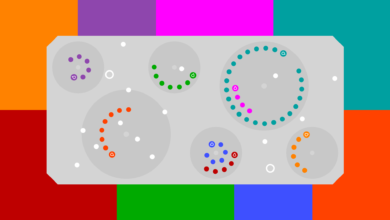Quantum Cryptography: The Future of Secure Communication

In the ever-evolving cybersecurity domain, Quantum Cryptography stands as a beacon of hope against the threats posed by quantum computers to traditional encryption methods. This innovative technique harnesses the peculiar principles of quantum mechanics to facilitate ultra-secure communication. Let’s delve into the nuances of Quantum and understand its significance.

What is Quantum Cryptography?
Quantum Cryptography, often called Quantum Key Distribution (QKD), is not about developing new cryptographic algorithms. Instead, it centers on the process of crucial exchange secured by the principles of quantum mechanics. In simple terms, it allows two parties to produce a shared, secret random number (known as a key) that can be used for secure communication.

Principles Behind Quantum
Quantum is grounded in the unique behaviors of quantum systems: the superposition principle allows quantum bits (qubits) to exist in multiple states simultaneously; entanglement ensures that the state of one qubit can be interdependent on another, regardless of distance; and the act of measuring a quantum system inherently disturbs it, making eavesdropping detectable.
For this case, an amount bit( or qubit) can be in a state representing 0, a state representing 1, or any amount superposition of these countries.

Trap
When two qubits become entangled, the state of one qubit can depend on the state of the other, no matter the distance separating them.

Dimension
The most profound principle in amount mechanics is that measuring an amount system always disturbs it. If someone tries to eavesdrop on a quantum key exchange, they will inevitably leave traces of their activity.

Applications of Quantum
Quantum bolsters secure communications for governments, militaries, and corporations. It provides a robust security layer for online financial transactions, ensuring safer digital banking. Critical infrastructures, like power grids, benefit from its tamper-evident communication capabilities. As technology evolves, its potential healthcare and cloud computing applications are emerging.

Quantum
Cryptography enhances secure communications for governments and military entities, provides an added security layer for financial transactions in the digital banking era, and safeguards critical infrastructure by ensuring tamper-evident communication between nodes.

Secure Communications
Governments, military organizations, and corporations can use QKD to encrypt sensitive data transmissions, ensuring that any eavesdropping attempt is detectable.

Financial Transactions
Fiscal deals are the backbone of global frugality, easing trade and commerce. With the rise of digital platforms, online deals have become decreasingly current, demanding robust cybersecurity measures. As these exchanges often involve sensitive data, ensuring their security and integrity is paramount. Quantum offers an innovative approach to safeguarding these digital financial activities against potential threats.

Quantum
Cryptography can offer additional security against potential cyber threats as digital banking and online transactions become prevalent.

Critical Infrastructure Protection
Secure communication between nodes can be vital for industries like power grids or water treatment facilities. QKD can provide that assurance.

Challenges in Quantum
Quantum confronts challenges such as restricted operational distances due to quantum signal degradation. Its technical intricacy demands specialized equipment and expertise. Integration with established communication systems needs to be more convenient. Furthermore, as it’s an emerging field, standardized protocols and global acceptance are still in development.

Distance Limitation
Currently, QKD is effective over limited distances due to the attenuation of quantum signals as they travel through fibers or air.

Technical Complexity
Implementing QKD requires sophisticated equipment and expertise, making it inaccessible for general use.

Integration with Existing Systems
Most of our communication infrastructure isn’t readily compatible with QKD. Adapting or replacing these systems is resource-intensive.

Conclusion
Quantum Cryptography presents a groundbreaking solution to modern security challenges, especially in an era where quantum computers threaten traditional encryption standards. While there are hurdles to its widespread adoption, ongoing research and innovations continue to push the boundaries, making QKD more accessible and practical. As cyber threats grow in complexity, the principles of quantum mechanics may be our most potent weapon in ensuring secure communication.
FAQs of Quantum Cryptography: The Future of Secure Communication
Is Quantum Cryptography unbreakable?
While no system can be considered absolutely unbreakable, the principles of quantum mechanics ensure that any eavesdropping on a QKD communication will be detectable.
What are the main challenges facing Quantum Cryptography?
Current challenges include limited transmission distances, technical complexity, integration with existing systems, and the need for standardized protocols.
Are quantum computers a threat to traditional encryption?
Yes, quantum computers have the potential to break many forms of traditional encryption. This threat underscores the importance of Quantum Cryptography as a countermeasure.
Can Quantum Cryptography be used for everyday online transactions?
While the technology is primarily used for high-security applications currently, ongoing research and advancements may make it feasible for everyday online transactions in the future.
Quantum Cryptography: The Future of Secure CommunicationHow Do You Like Our Post
0






